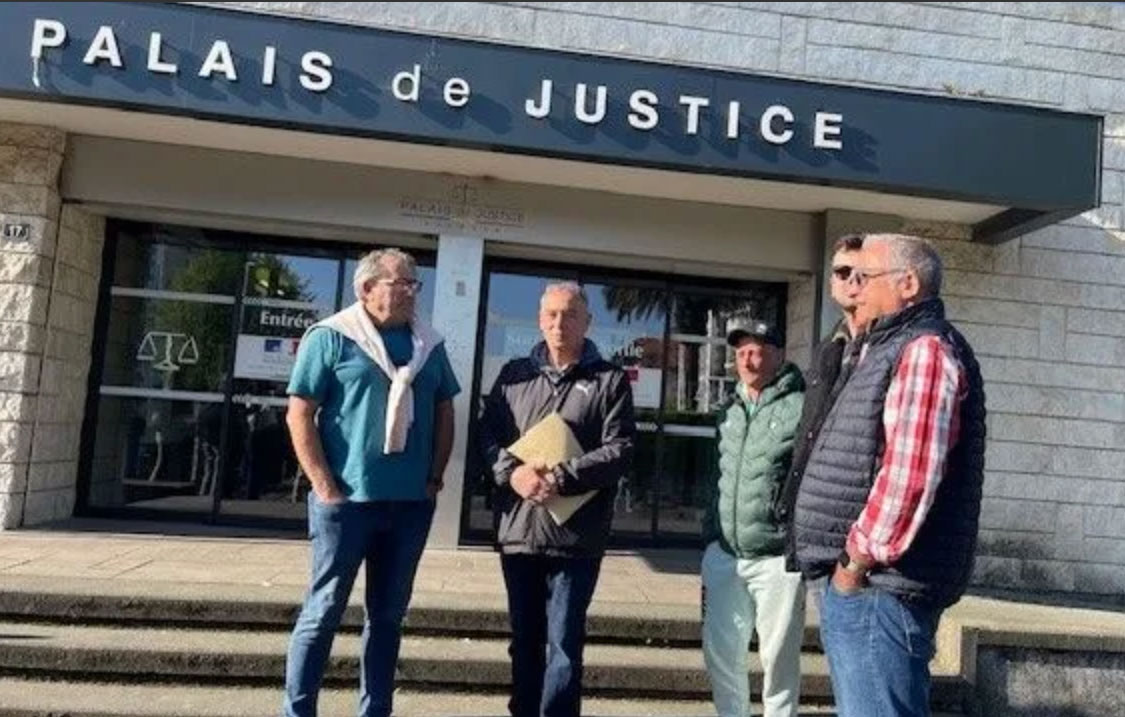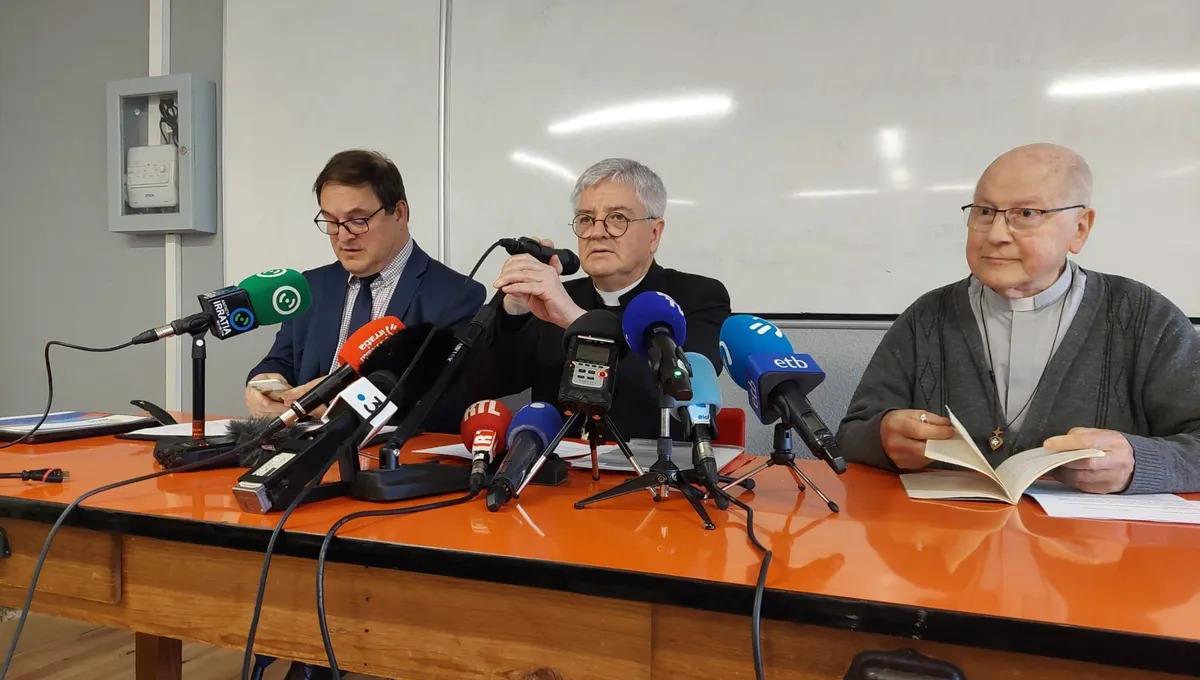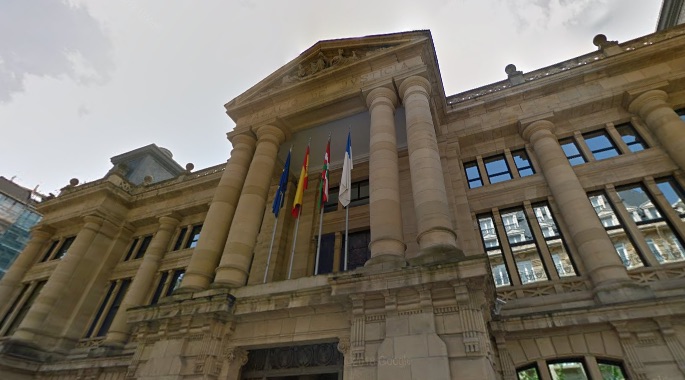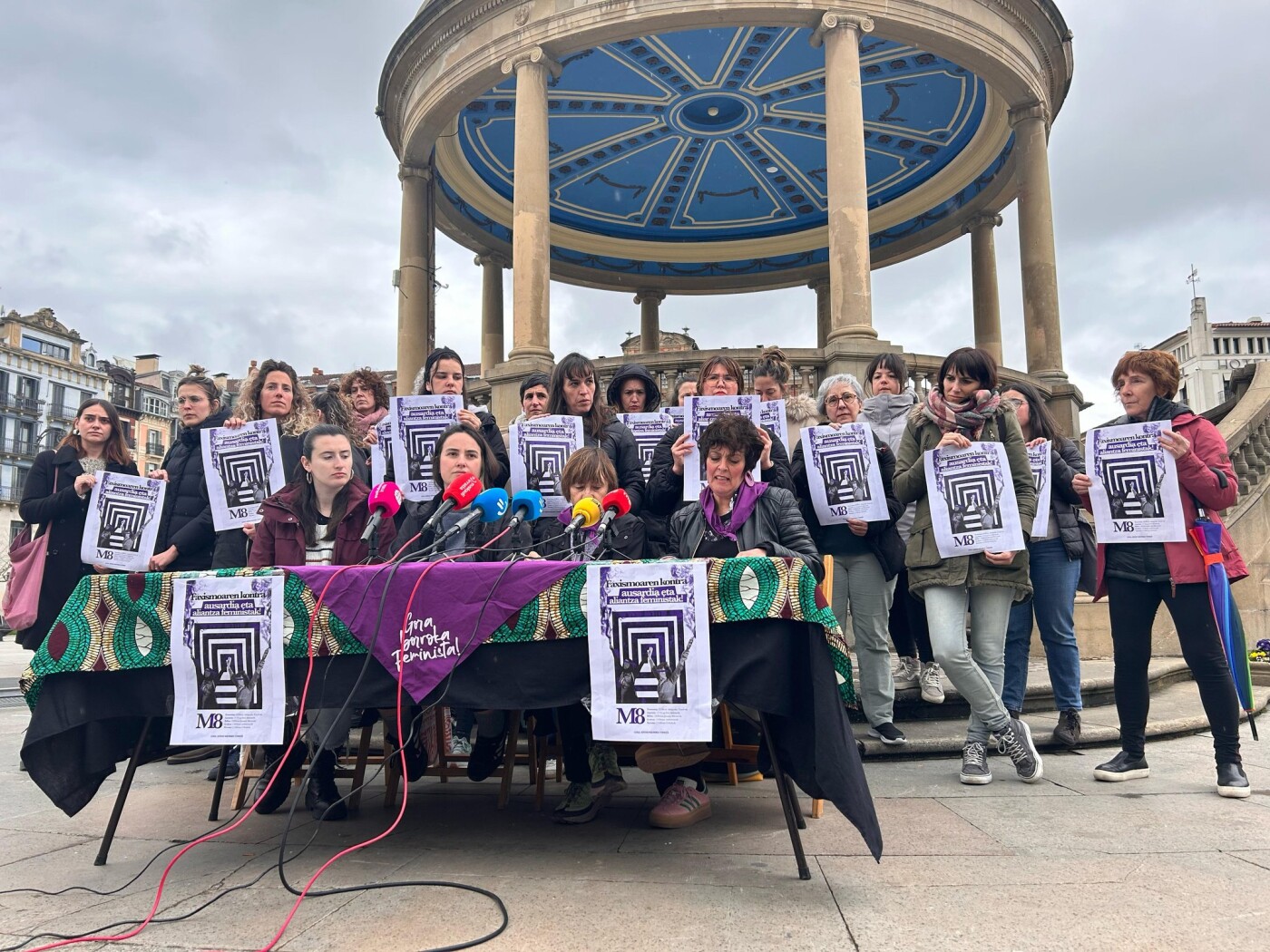The Bilbao Courts of Violence Against Women approve to put color badges on the investigators and their lawyers
- According to the Dean judge of Bilbao, Aner Uriarte, the measure consists in identifying "who is who" and protecting women and not revictimizing them. The Bizkaia Bar Association has denounced that the principle of innocence and “dignity” are not respected.

The two Courts of Violence against Women in Bilbao have approved the placement of colour badges for the accused. The Dean judge of Bilbao, Aner Uriarte, spoke with the agency Efe and responded to the complaint of the Bar Association of Bizkaia, which denounced that the presumption of innocence of the investigators was violated and that the “dignity” is put at risk and that leads them “to the advanced punishment of the chairs”. The distinctives will apply to the investigators and their lawyers, and Uriarte has explained that the aim of the measure is to protect the woman and not to revictimize her. The Dean judge of Bilbao has argued that the officials have applied in each case to know "who is who" and to prevent the defendant and the complainant from meeting. “If it’s hard to report and accuse you of certain facts that can lead your partner or former partner to prison, it’s harder to suddenly find yourself in court when you’re going to testify against him,” Uriarte said.
Uriarte underlined that the application of the measure comes after "an incident" occurred in the courts. The dean judge has said that the measure is a pioneer in the courts of the Spanish State and that it is not a norm, but “a form of internal organization taken by the Courts of Violence against Women in their autonomy and independence, which does not need any type of authorization”.
Regarding the complaint of the Bar Association of Bizkaia, he said that he disagrees with what they have said, that is, that the presumption of innocence is not respected with this measure, “because it is the same, with or without color”, and has argued that “they will only take action if the magistrates find evidence of crime”. The Foundation has complained that lawyers are also forced to wear these badges, and Uriarte said it is "publicly known" that attorneys defend clients.
For lawyers, “legally and ethically condemnable”
The Bizkaia Bar Association has referred the complaint to the High Court of Justice of the Basque Country. The lawyers have called through a press release for the "immediate withdrawal" of this type of badges and have denounced that this measure "marks and signals" the defendants to the other persons charged in these courts. They denounce that the decision is "disproportionate and unnecessary" and "legally and ethically condemnable" and that it "lacks legal support and is contrary to the principles of the rule of law".
Lawyers have pointed out that the distinction is “absolutely far from respect and kindness” and is “inadequate and unnecessary”, as they have the professional identification card and access to the courts.
The lawyers have also referred a complaint to the Lakua Executive and the Bizkaia Coordinating Secretariat for their alleged involvement. The High Court of Justice of the Basque Country shall transfer the complaint to the judges, who shall then decide on its content.
Prentsaurrekoa eskaini dute ostegun honetan Marc Aillet Baionako apezpikuak, elizbarrutiko hezkuntza katolikoko zuzendari Vincent Destaisek eta Betharramgo biktimen entzuteko egiturako partaideetarikoa den Laurent Bacho apaizak. Hitza hartzera zihoazela, momentua moztu die... [+]
Antifaxismoari buruz idatzi nahiko nuke, hori baita aurten mugimendu feministaren gaia. Alabaina, eskratxea egin diote Martxoaren 8ko bezperan euskal kazetari antifaxista eta profeminista bati.
Gizonak bere lehenengo liburua aurkeztu du Madrilen bi kazetari ospetsuk... [+]
11 adin txikikori sexu erasoak egiteagatik 85 urteko kartzela zigorra galdegin du Gipuzkoako fiskaltzak. Astelehenean hasi da epaiketa eta gutxienez martxoaren 21era arte luzatuko da.
Matxismoa normalizatzen ari da, eskuin muturreko alderdien nahiz sare sozialetako pertsonaien eskutik, ideia matxistak zabaltzen eta egonkortzen ari baitira gizarte osoan. Egoera larria da, eta are larriagoa izan daiteke, ideia zein jarrera matxistei eta erreakzionarioei ateak... [+]
Elizak 23 kasu ditu onarturik Nafarroa Garaian. Haiek "ekonomikoki, psikologikoki eta espiritualki laguntzeko" konpromisoa adierazi du Iruñeko artzapezpikuak.
15 urteko emakume bati egin dio eraso Izarra klubean jarduten zuen pilota entrenatzaile batek.
Lestelle-Betharramgo (Biarno) ikastetxe katolikoko indarkeria eta bortxaketa kasuen salaketek beste ikastetxe katoliko batzuen gainean jarri du fokua. Ipar Euskal Herriari dagokionez, Uztaritzeko San Frantses Xabier kolegioan pairaturiko indarkeria kasuak azaleratu dira... [+]
Bi neska komisarian, urduri, hiru urtetik gora luzatu den jazarpen egoera salatzen. Izendatzen. Tipo berbera agertzen zaielako nonahi. Presentzia arraro berbera neskek parte hartzen duten ekitaldi kulturaletako atarietan, bietako baten amaren etxepean, bestea korrika egitera... [+]
Martxoak 8a heltzear da beste urtebetez, eta nahiz eta zenbaitek erabiltzen duten urtean behin beren irudia morez margotzeko soilik, feministek kaleak aldarriz betetzeko baliatzen dute egun seinalatu hau. 2020an, duela bost urte, milaka emakumek elkarrekin oihukatu zuten euren... [+]
Neska adingabeari sexu abusuak era jarraituan egin zizkiola frogatutzat jo du Bizkaiko Lurralde Auzitegiak.
1989tik 2014ra, Frantzia mendebaldeko hainbat ospitaletan egindako erasoengatik epaituko dute. 74 urte ditu Joel Le Scouarnec zirujau ohiak, eta espetxean dago beste lau sexu eraso kasurengatik.
Lau mila karaktere ditut kontatu behar dudana kontatzeko. Esan behar ditut gauzak argi, zehatz, soil, eta ahalko banu polit, elegante, egoki. Baga, biga, higa. Milimetrikoki neurtu beharra dut, erregelaz markatu agitazioa non amaitzen den eta propaganda non hasi. Literarioki,... [+]





















